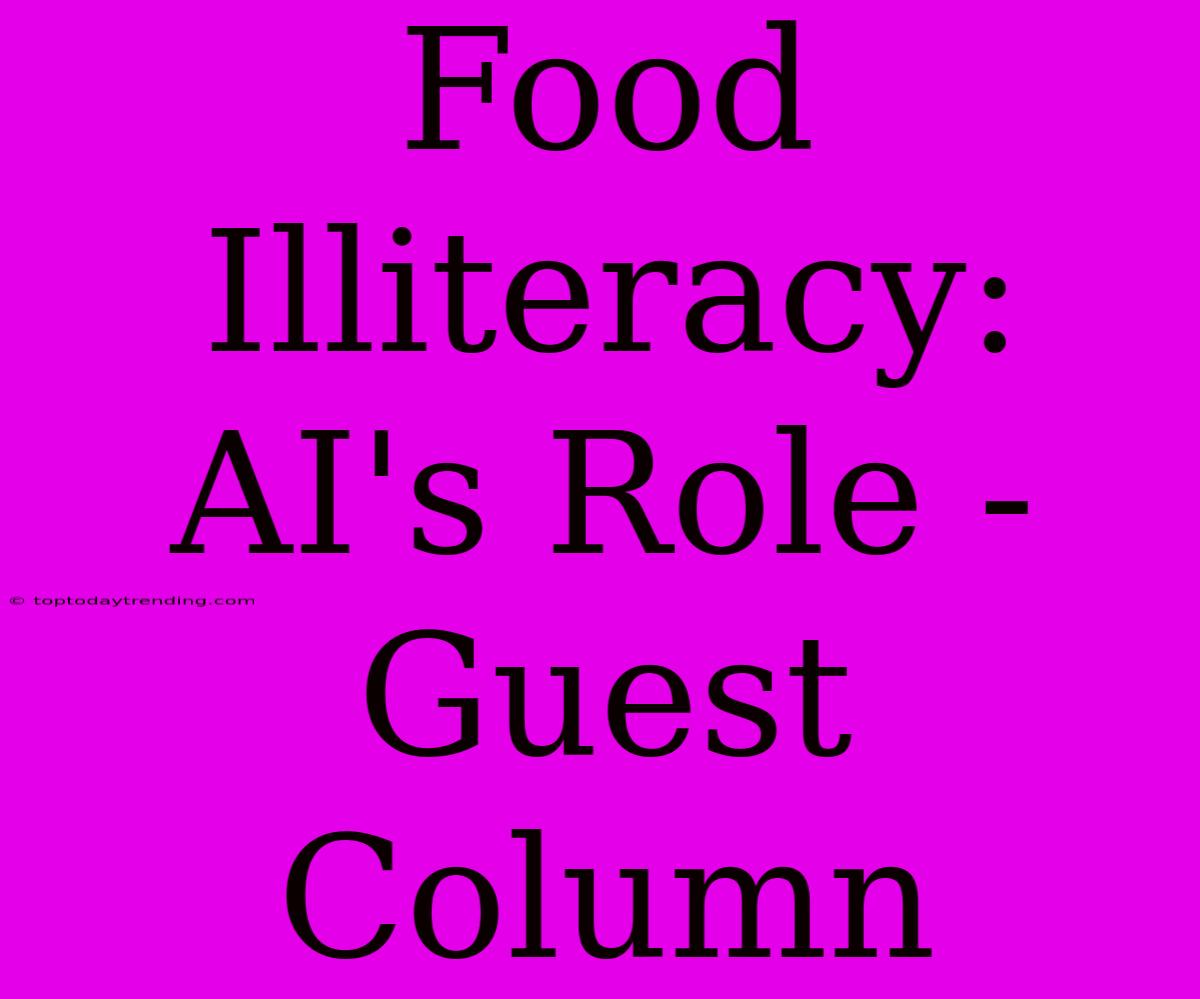Food Illiteracy: AI's Role - Guest Column
The world is facing a food crisis. Not just a crisis of scarcity, but a crisis of understanding. We're grappling with food waste, unsustainable farming practices, and a growing disconnect between consumers and the origins of their food. This disconnect is a major contributor to what experts call "food illiteracy," a lack of knowledge about where food comes from, how it's produced, and its impact on our health and environment.
This is where artificial intelligence (AI) can play a powerful role in tackling food illiteracy. AI can be used to:
1. Bridge the Knowledge Gap:
- Personalized Education: AI-powered platforms can tailor educational content to individual needs and interests. Imagine interactive learning modules that explain food systems, guide healthy food choices, or offer personalized cooking tutorials based on dietary restrictions and preferences.
- Interactive Food Tracing: AI can be used to develop transparent food tracing systems, allowing consumers to track the journey of their food from farm to plate. This can foster greater understanding of production practices, ethical sourcing, and environmental impacts.
- Virtual Reality Experiences: AI-powered virtual reality experiences can immerse consumers in the world of food production, bringing them face-to-face with farmers, highlighting food production processes, and demonstrating the challenges faced by the agricultural industry.
2. Empowering Consumers:
- Personalized Food Recommendations: AI algorithms can analyze user data to provide personalized food recommendations based on dietary needs, preferences, and even local availability. This can encourage healthy eating choices and reduce food waste by suggesting recipes that utilize leftover ingredients.
- Recipe Optimization: AI can help users optimize recipes for cost, nutritional value, or even sustainability. Imagine AI-powered recipe platforms that suggest swaps for more sustainable ingredients or recipes that minimize food waste.
- Smart Grocery Shopping: AI can analyze purchase history and dietary needs to create personalized shopping lists, potentially reducing impulse purchases and promoting healthy choices.
3. Transforming the Food System:
- Precision Agriculture: AI can be used to optimize crop yields, reduce water and fertilizer usage, and minimize environmental impacts. This includes predicting pest outbreaks, optimizing irrigation systems, and promoting sustainable farming practices.
- Supply Chain Optimization: AI can streamline food distribution networks, reducing waste and improving efficiency. By analyzing data on demand, production, and logistics, AI can optimize delivery routes, predict potential shortages, and ensure timely delivery of fresh food to consumers.
- Food Waste Reduction: AI can be used to identify patterns in food waste generation and implement solutions. This could include optimizing shelf-life prediction, developing smart packaging that indicates freshness, or promoting food donation programs.
AI is not a silver bullet, but it holds enormous potential to address the challenge of food illiteracy. It can empower consumers, transform the food system, and ultimately lead to a more sustainable, equitable, and healthy food future for all.
It's time to embrace the power of AI to tackle food illiteracy and build a brighter future for our food system.

